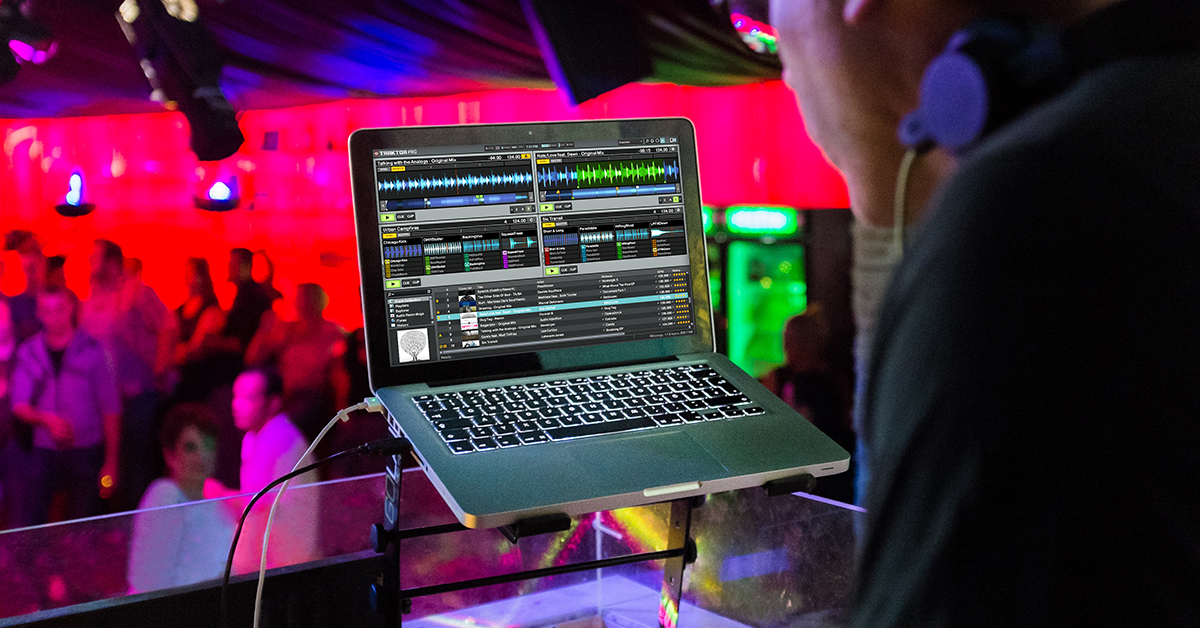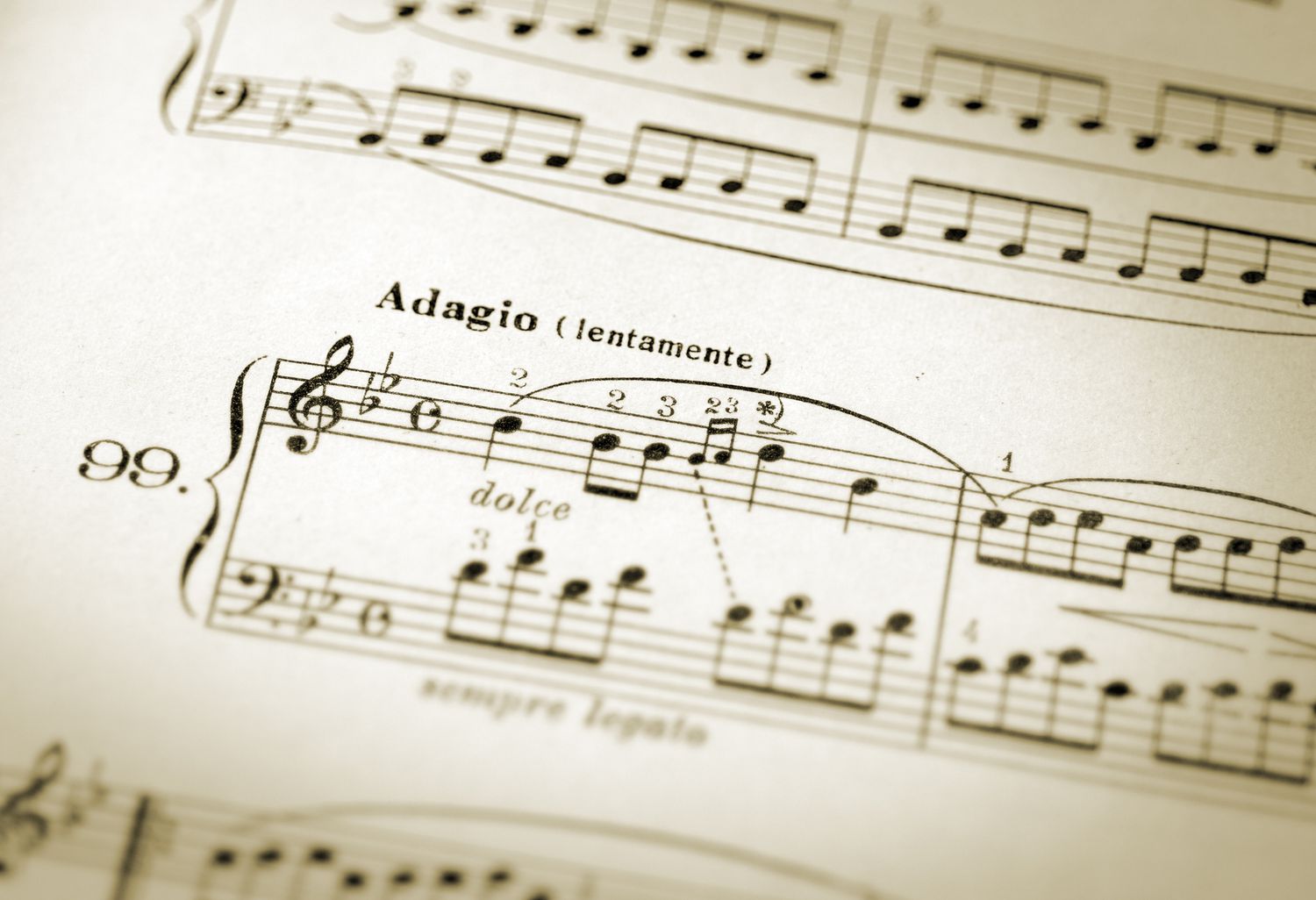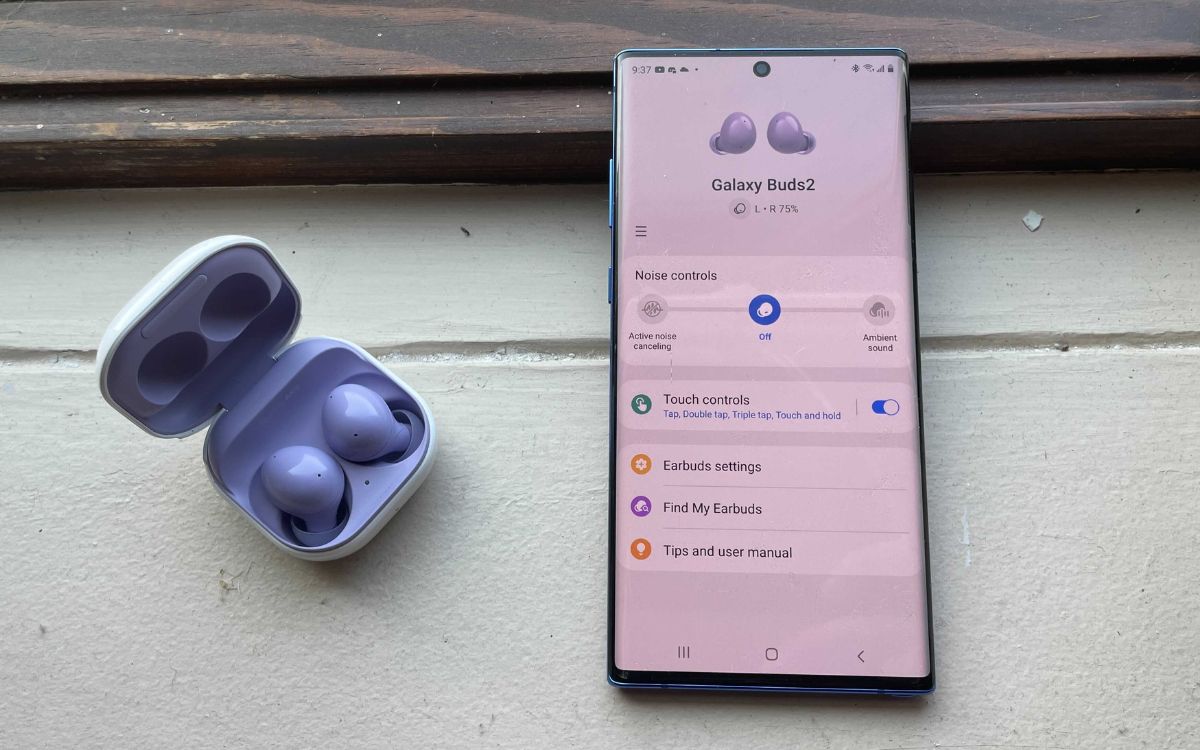Home>Production & Technology>Remix>How To Find Acapellas For Remix


Remix
How To Find Acapellas For Remix
Modified: January 22, 2024
Learn how to find acapellas for remix and take your remixing skills to the next level with our comprehensive guide. Discover the best sources and techniques for finding high-quality acapellas.
(Many of the links in this article redirect to a specific reviewed product. Your purchase of these products through affiliate links helps to generate commission for AudioLover.com, at no extra cost. Learn more)
Table of Contents
Introduction
Remixing has become an incredibly popular form of music production, allowing artists and producers to breathe new life into existing songs. Whether you’re a seasoned remix artist or just starting out, one of the key elements to creating a great remix is finding high-quality acapellas. Acapellas, or vocal-only tracks, provide the raw material for remixing, allowing you to build new arrangements, add effects, and create entirely new musical landscapes.
In this article, we will explore various methods and resources to help you find acapellas for your remix projects. From online databases to vocal isolation software, there are several approaches you can take to obtain the perfect acapella for your remix.
But before we dive into the methods, let’s take a moment to understand what acapellas are and why they are vital to the remixing process.
Understanding Acapellas
An acapella, often referred to as a vocal stem, is an isolated vocal track from a song without any accompanying instruments or music. Acapellas allow remix artists to work with the raw vocals, giving them the freedom to manipulate and rearrange the vocals to fit their creative vision.
When searching for acapellas, it is crucial to find high-quality vocal stems that have been professionally recorded and properly isolated. This ensures that the acapella will blend seamlessly with your remix and maintain the same audio fidelity as the original track.
If you’re ready to start exploring the world of acapellas for your next remix project, there are several online resources available to help you find the perfect vocal tracks. Let’s take a look at some of the options.
Understanding Acapellas
An acapella, often referred to as a vocal stem, is an isolated vocal track from a song without any accompanying instruments or music. Acapellas allow remix artists to work with the raw vocals, giving them the freedom to manipulate and rearrange the vocals to fit their creative vision.
When searching for acapellas, it is crucial to find high-quality vocal stems that have been professionally recorded and properly isolated. This ensures that the acapella will blend seamlessly with your remix and maintain the same audio fidelity as the original track.
The quality of an acapella can greatly impact the final outcome of your remix. A well-recorded and clean acapella will provide you with a clear and crisp vocal tone, making it easier to integrate into your remix without any unwanted artifacts or background noise. On the other hand, a low-quality or poorly isolated acapella can create challenges during the remixing process, often resulting in a less polished end product.
When searching for acapellas, it’s essential to consider the genre and style of music you’re working with. Acapellas come in various genres, including pop, rock, hip-hop, EDM, and more. Matching the acapella to your remix’s genre will give you a solid foundation to build upon and ensure that the vocals complement the overall vibe and energy of your remix.
Furthermore, understanding the key and tempo of the original acapella is crucial when starting a remix. This information will help you ensure that the new musical elements you add align harmonically and rhythmically with the vocals. Many online resources provide this information along with the acapella, allowing you to seamlessly incorporate it into your remix.
Lastly, it’s important to note that using acapellas for remixing is subject to copyright laws. While remixing can be a transformative and creative process, it’s essential to obtain the necessary permissions or licenses if you plan to release your remix commercially. It’s always a good practice to do your research and ensure that you comply with copyright regulations to avoid any legal issues.
Now that we have a solid understanding of acapellas and their significance in the remixing process, let’s explore the various methods and resources available to find acapellas for your next remix project.
Online Databases
Online databases are a treasure trove of acapellas for remix artists. These platforms provide a vast collection of vocal stems across various genres, making it easy to find the perfect acapella for your remix project.
One popular online database for acapellas is Acappella Town. It offers a wide range of acapellas from different genres, including pop, hip-hop, R&B, and more. The platform allows you to search for acapellas by genre, tempo, and key, making it easier to find a vocal track that suits your remix’s style and requirements. Additionally, Acappella Town provides a rating system for acapellas, giving you an idea of the quality and usability of each vocal stem before you download it.
Another prominent resource is Looperman. While primarily known for loops and samples, Looperman also offers a section dedicated to acapellas. The platform features user-contributed acapellas that cover a wide range of genres and styles. It’s a great place to discover unique and lesser-known vocal tracks that can add a fresh twist to your remix.
If you’re looking for a more comprehensive database, ccMixter is worth exploring. This platform not only provides acapellas but also promotes collaboration between artists. You can find vocal stems from various genres, sorted by popularity and rating. Additionally, ccMixter offers licensing options and encourages artists to share their remixes and collaborations, fostering a vibrant community of remix enthusiasts.
If you have a specific acapella in mind, Splice might be your go-to resource. While primarily known for its sample library, Splice also offers vocal stems from popular songs. With its powerful search feature, you can easily find acapellas by entering the artist name, song title, or keywords. Splice also provides high-quality acapellas with detailed metadata, helping you find the perfect vocal track quickly.
Remember, when using acapellas from online databases, always check the licensing terms and ensure that you comply with any usage restrictions. Respecting the rights of the original artists and copyright holders is crucial when incorporating their work into your remix.
Now that you have a better understanding of online databases, let’s explore another avenue for finding acapellas – remix communities.
Remix Communities
Remix communities are fantastic platforms for connecting with other remix artists, exchanging ideas, and collaborating on music projects. These communities often have dedicated sections or forums where members can share and request acapellas for remixing purposes.
One popular remix community is indaba Music. Indaba Music offers a space for musicians and producers to collaborate and share their remixes. The platform hosts various remix contests where artists can submit their remixes for a chance to win prizes and exposure. Additionally, Indaba Music provides a section called “Downloads” where users can find acapellas available for remixing. Whether you’re looking to collaborate with others or work on your remix independently, Indaba Music is a great place to find unique acapellas.
Vocalizr is another remix community that focuses on connecting remix artists with professional singers and vocalists. This platform allows you to post remix projects and collaborate with talented vocalists who can provide high-quality acapellas tailored to your specific needs. The advantage of Vocalizr is that you can work directly with singers and vocalists, ensuring that you have complete control over the vocal performance and style in your remix.
RemixComps is a website that aggregates various remix competitions from around the world. It provides a platform for remix artists to discover contests featuring specific songs or artists. These competitions often provide official acapellas for remixing, giving you the opportunity to work with studio-quality vocal stems and potentially gain exposure if your remix stands out.
Participating in remix communities not only allows you to find acapellas for your remix projects but also exposes you to a network of like-minded individuals who share your passion for remixing. Collaborating with others and receiving feedback can greatly enhance your remixing skills and help you grow as an artist.
Now, let’s explore a different approach to obtaining acapellas – the use of vocal isolation software.
Vocal Isolation Software
Vocal isolation software is a valuable tool for remix artists who want to extract vocals from existing songs to create their own acapellas. While it may not always provide the same quality as professionally isolated acapellas, it can be a great option if you have a specific song in mind that doesn’t have readily available acapellas.
One popular vocal isolation software is RX7 from iZotope. This powerful audio editing tool has a feature called “Music Rebalance” that allows you to isolate vocal tracks from mixed songs. By adjusting the settings, you can attenuate or remove the instruments and keep the vocals more prominent. While the results may vary depending on the song’s original mix, RX7 provides an effective solution for isolating vocals and creating DIY acapellas.
Kn0ck0ut is another popular vocal isolation plugin that operates as a VST or AU plugin within your digital audio workstation (DAW). Kn0ck0ut applies a technique called “phase cancellation” to remove instruments from a stereo mix, leaving the vocals isolated. While it may not work perfectly on complex mixes or songs with heavy effects, it can still be a useful tool for obtaining usable acapellas from certain tracks.
Another approach to vocal isolation is using Spleeter, an open-source software developed by Deezer. Spleeter utilizes deep learning algorithms to separate vocals from music tracks, providing you with separated stems including vocals, drums, bass, and other instrumental elements. Since Spleeter is open-source, various user-friendly interfaces and plugins have been developed around it, making it accessible to producers of all levels.
It’s important to note that while vocal isolation software can be a valuable resource, the quality of the isolated vocals may not always be perfect. It’s crucial to critically listen and assess the results to determine if they meet your standards for your remix project.
Now that we have explored vocal isolation software, let’s move on to another method of obtaining acapellas – collaborating with singers.
Collaborating with Singers
Collaborating with singers is an excellent way to obtain high-quality and personalized acapellas for your remix projects. Working directly with vocalists allows you to create custom vocals that perfectly match your creative vision.
There are several avenues you can explore to find talented singers to collaborate with. One option is to reach out to local vocalists in your area through music schools, open mic nights, or online communities. Many singers are eager to collaborate with producers and remix artists, as it offers them an opportunity to showcase their talent and expand their musical repertoire.
Another approach is to utilize online platforms specifically designed to connect musicians and vocalists. For example, Vocalizr is a platform that allows remix artists to find and collaborate with professional singers. On Vocalizr, you can browse through a diverse pool of vocalists, listen to their demos, and send project proposals for potential collaborations. This ensures that you have complete control over the vocal performance and style in your remix, resulting in a unique and tailor-made acapella.
When collaborating with singers, communication is key. Clearly communicate your vision and expectations for the acapella, including the genre, style, and any specific vocal techniques or effects you have in mind. Providing reference tracks or demos can help vocalists understand your desired sound and deliver vocals that align with your remix’s direction.
While collaborating with singers can yield exceptional results, it’s important to establish clear guidelines regarding ownership and rights to the acapella. Depending on the agreement between you and the vocalist, you may need to determine usage rights, royalty splits, and other legal considerations.
Now that you understand the benefits of collaborating with singers, let’s explore another method for obtaining acapellas – extracting vocals from existing songs.
Extracting Vocals from Songs
If you have a specific song in mind that you want to remix but can’t find the acapella, you can try extracting the vocals from the original song itself. While this method may not always provide perfect results, it can be a viable option when other resources are limited.
One common technique for vocal extraction is to use a process called “phase cancellation.” This method involves finding the instrumental version of the original song and inverting its phase, then combining it with the original mix. The goal is to cancel out the instrumentals, leaving the vocals more prominent. While this approach may reduce the instrumentals, it may also affect the audio quality and result in a loss of certain frequencies in the vocals.
There are tools available that can simplify the vocal extraction process. One such tool is ADX Trax by Audionamix, which uses advanced algorithms to isolate vocals from stereo or mono mixes. ADX Trax allows you to adjust the volume and pan positions of the instrumentals and vocals, giving you more control over the extraction process.
Another popular option is PhonicMind, an online service that uses AI algorithms to separate vocals from songs. PhonicMind allows you to upload a song and receive a processed version with the vocals extracted. While the results may vary depending on the song’s complexity and production techniques, PhonicMind can produce satisfactory results for certain tracks.
It’s important to note that extracting vocals from songs without the explicit permission of the original artist or copyright holder may infringe on copyright laws. It’s crucial to respect intellectual property rights and use extracted vocals for personal projects or remixes only.
Remember, vocal extraction techniques may not always yield perfect results. The quality of the vocals you extract will depend on factors such as the original mix, production techniques, and the capabilities of the tool or method you use. It’s essential to critically listen to the extracted vocals and make any necessary adjustments or enhancements to achieve the desired outcome.
Now that we’ve explored various methods for obtaining acapellas, let’s conclude our journey into the world of remixing.
Conclusion
Remixing is a creative and exciting process that allows artists to put their unique spin on existing songs. Finding high-quality acapellas is essential to creating captivating remixes that seamlessly blend with the original vocals. Throughout this article, we have explored several methods and resources to help you find the perfect acapellas for your remix projects.
We began by understanding the importance of acapellas in the remixing process. Acapellas provide the raw material for remix artists to manipulate and rearrange vocals, breathing new life into existing songs. We discussed the significance of finding professional and properly isolated acapellas to ensure the best audio quality and integration with your remix.
We then explored online databases, such as Acappella Town, Looperman, ccMixter, and Splice, where you can find a wide range of acapellas across various genres. These platforms offer search filters and ratings to help you locate suitable vocal stems for your remixing projects. We also highlighted the importance of respecting copyright laws when using acapellas from online databases.
Next, we discussed the benefits of remix communities, such as Indaba Music, Vocalizr, and RemixComps. These platforms not only provide acapellas for remixing but also connect you with other remix artists, fostering collaboration and feedback.
Vocal isolation software, such as RX7, Kn0ck0ut, and Spleeter, was presented as another option for obtaining vocals. While not always perfect, these tools allow you to extract vocals from mixed songs or separate stems for remixing purposes.
Collaborating with singers emerged as a fruitful approach, enabling you to create customized and high-quality acapellas. Platforms like Vocalizr provide a space for remix artists and vocalists to connect and work together. Effective communication and clear agreements regarding ownership and usage rights are important when collaborating with singers.
Lastly, we examined the method of extracting vocals from songs using phase cancellation techniques or tools like ADX Trax and PhonicMind. However, it’s crucial to respect copyright laws and ensure that you have permission to extract vocals from copyrighted material.
In conclusion, finding acapellas for remixing requires a combination of resourcefulness, creativity, and respect for copyright laws. Whether you utilize online databases, collaborate with singers, extract vocals, or explore remix communities, the key is to experiment and find the approach that best suits your remixing style. With the right acapella, you can take your remixes to new heights and create captivating musical experiences.











